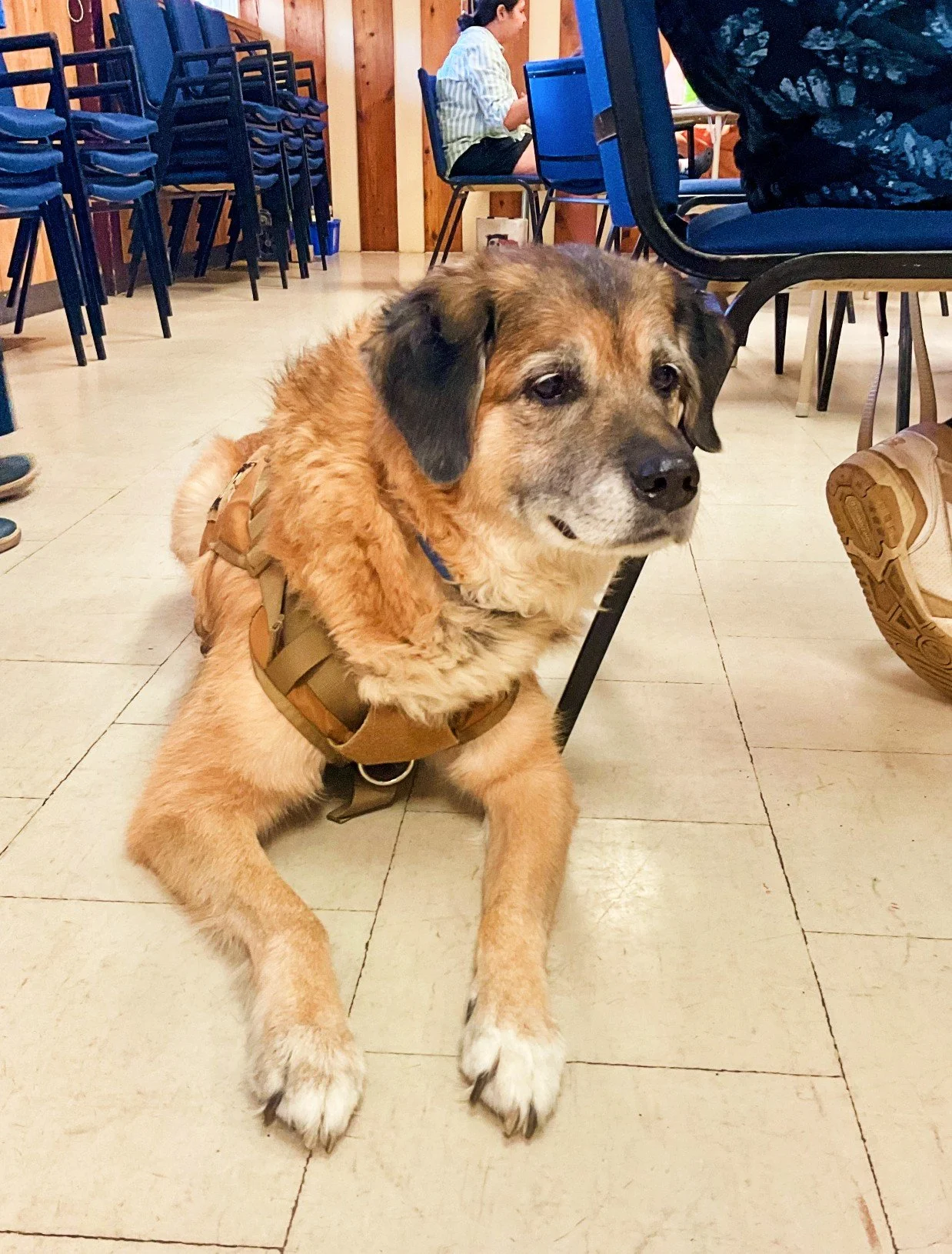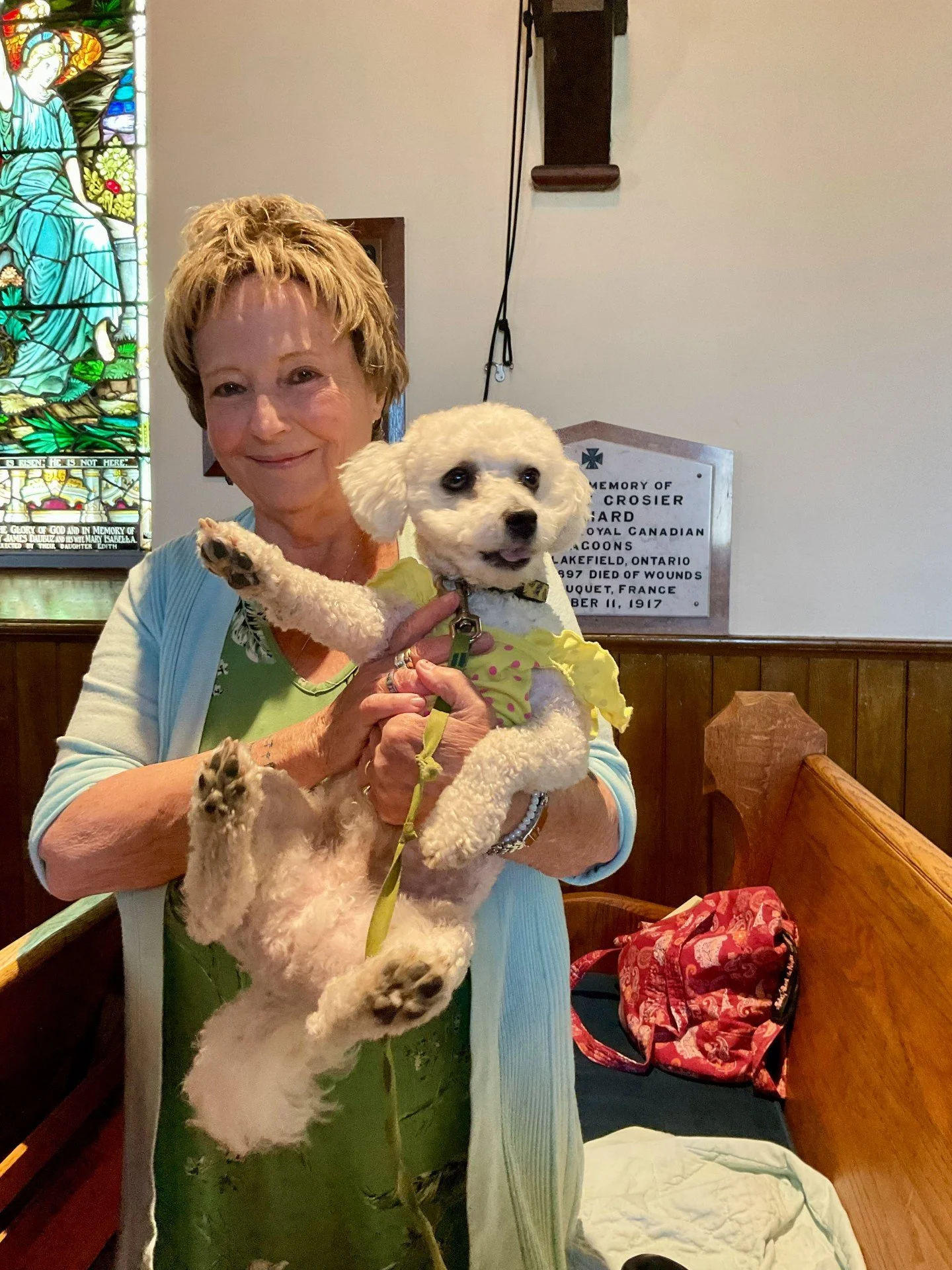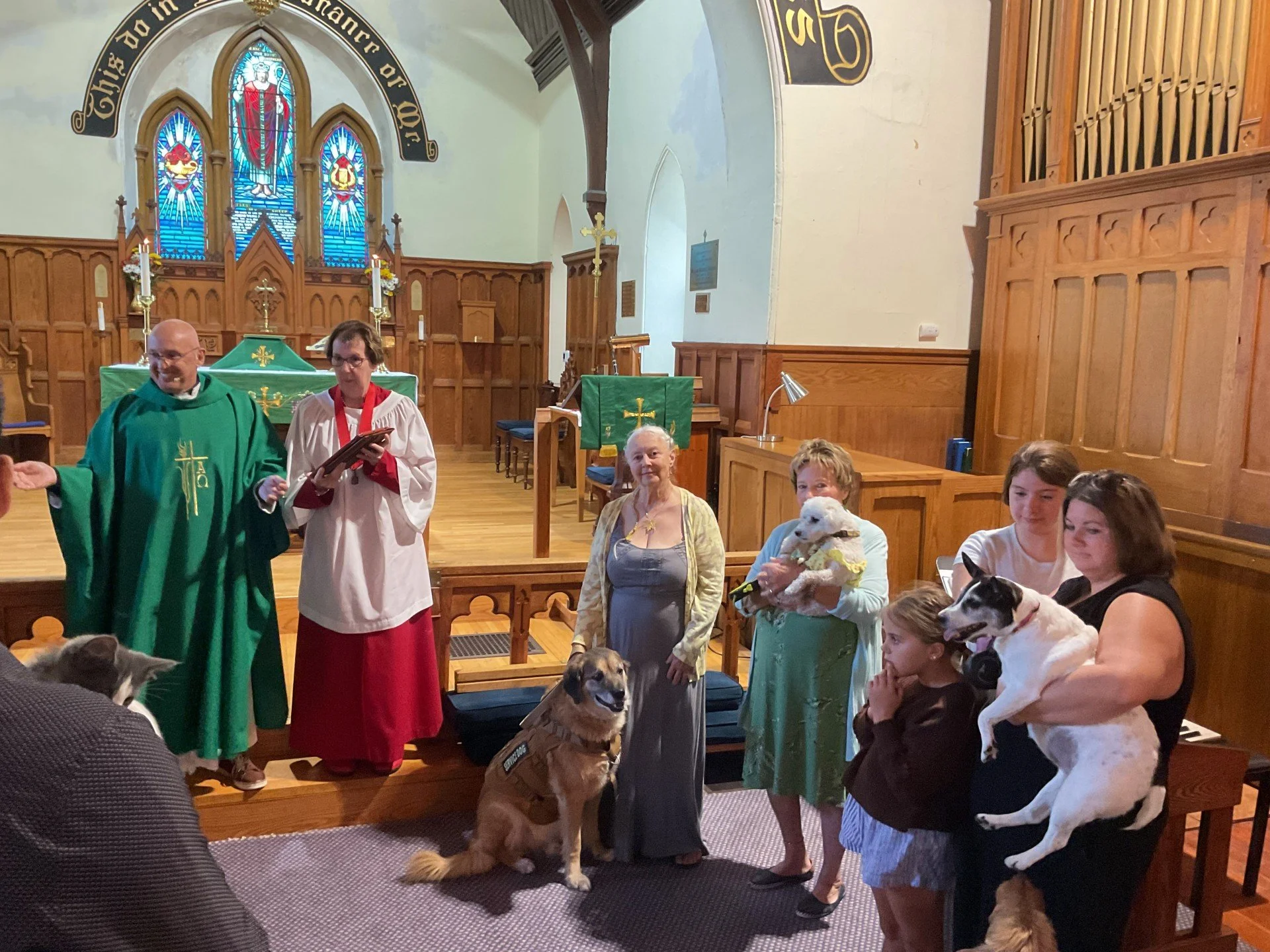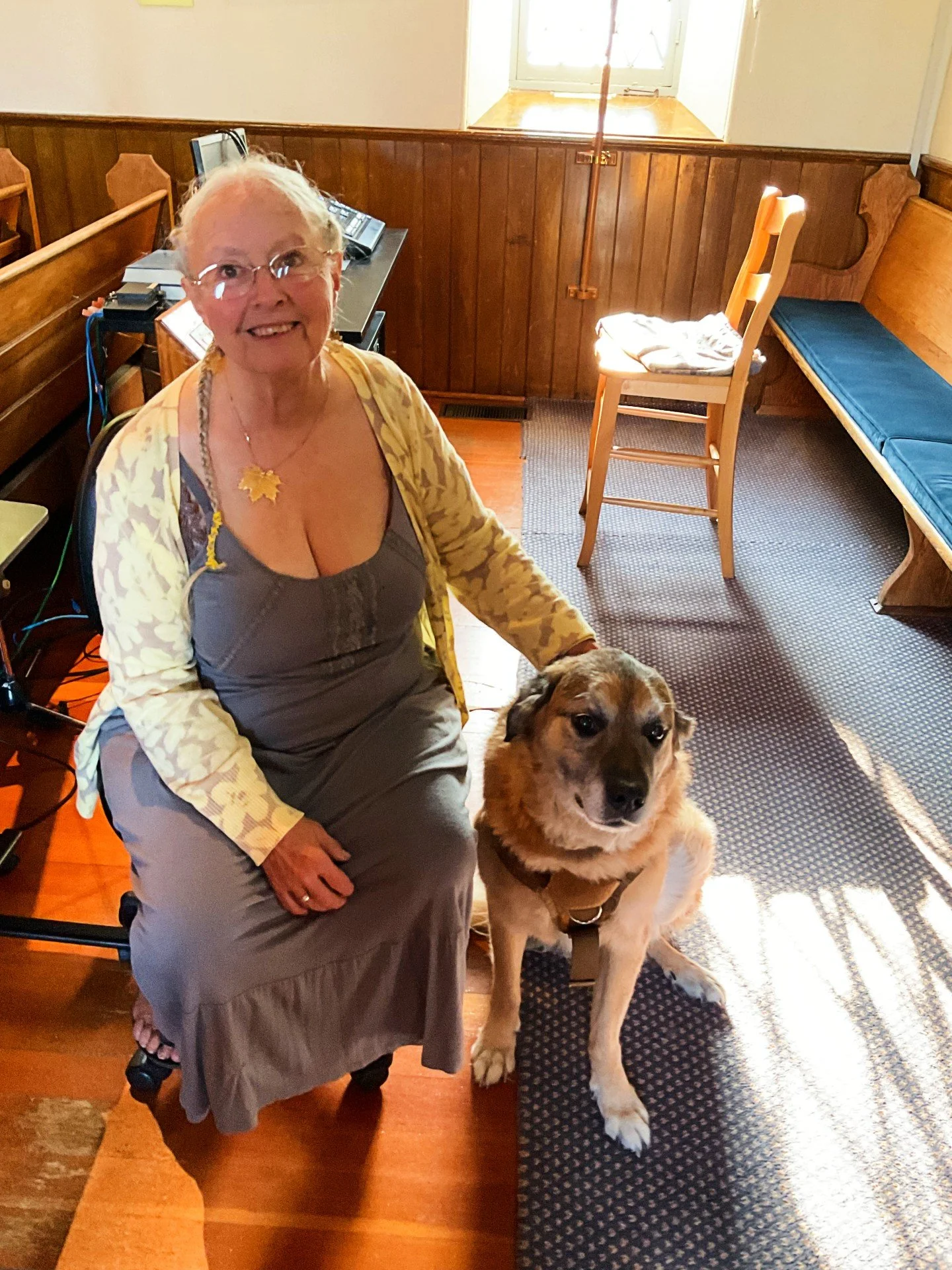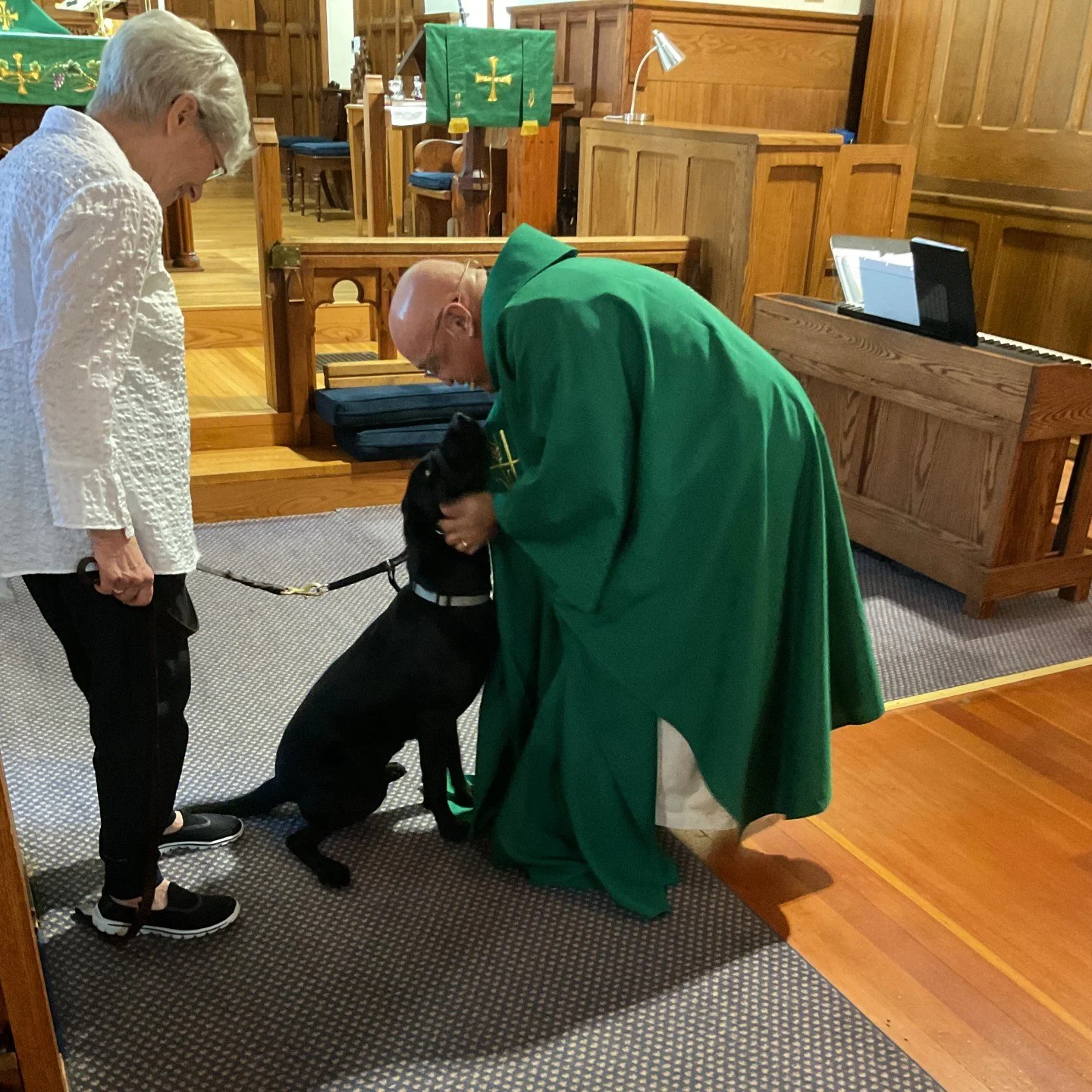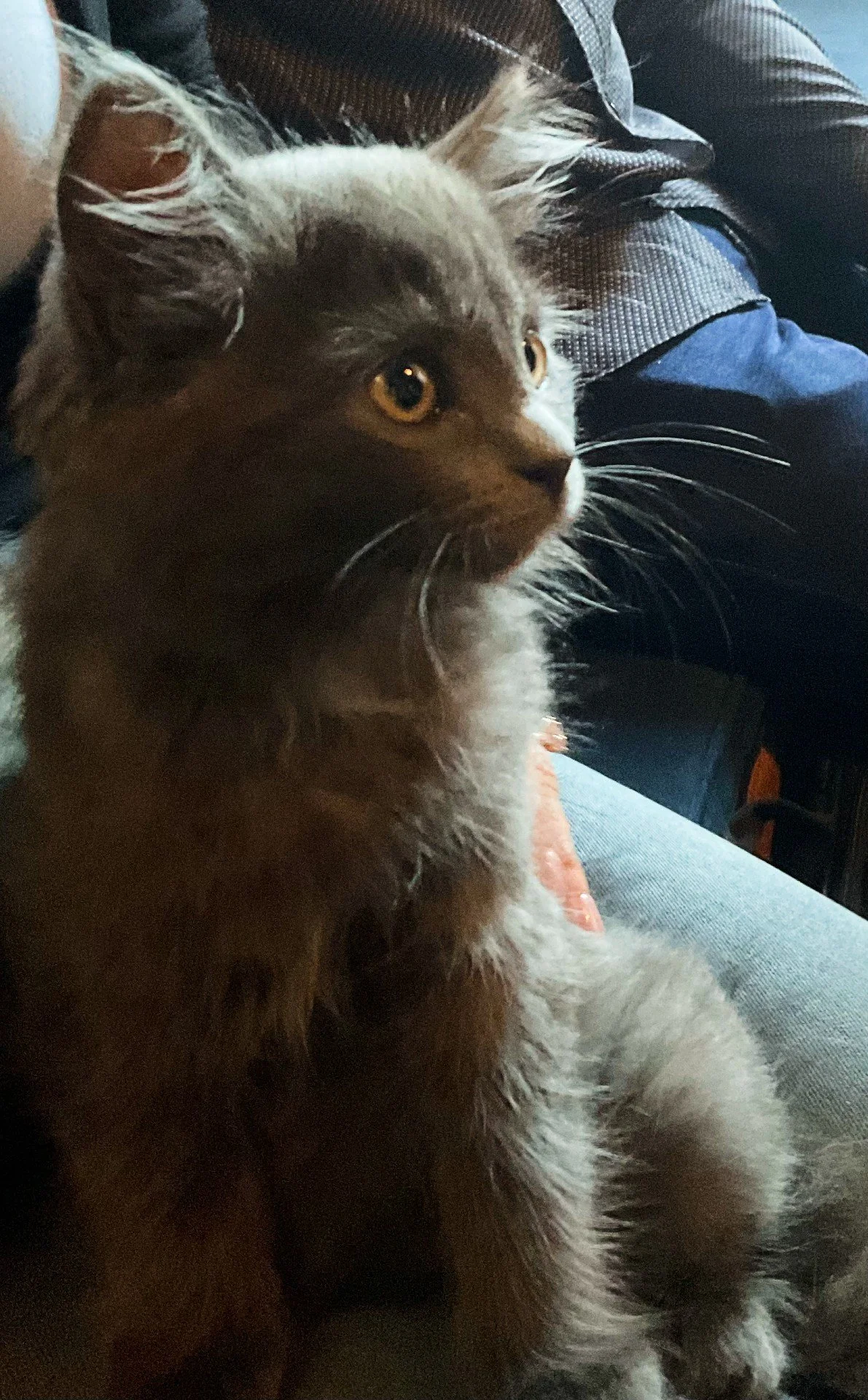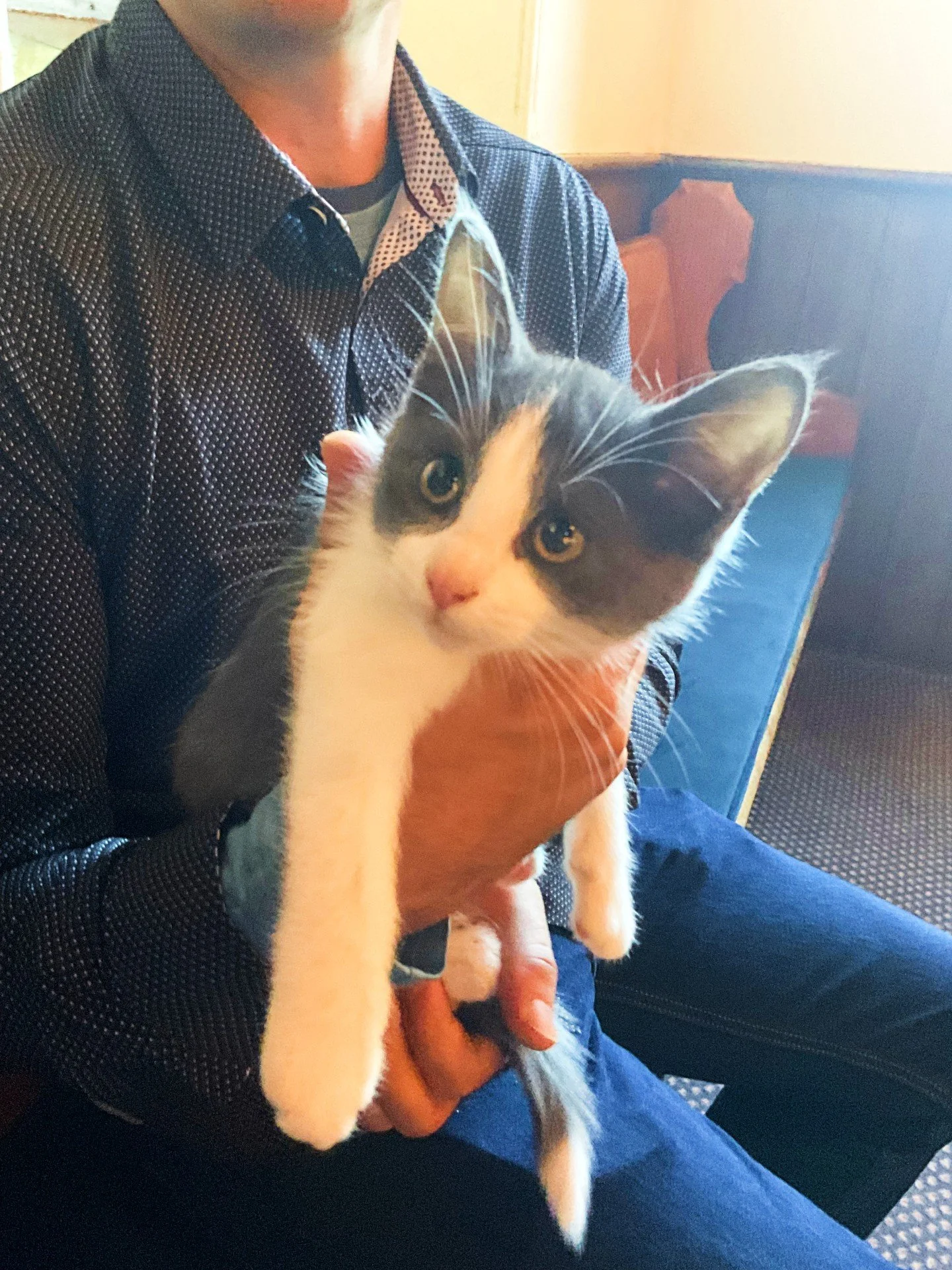Sunday Sermon - 5 October
The Blessing of Animals service has been part of the Christian and Anglican tradition for a long time but do you ever wonder why we do this?
Do we do this because our pets and animals really need blessing?
No, our pets and animals are like little children, they are innocent. They are sacred. We have these services and we ask God to bless these our pets not for them but for us. A reminder to us of their sacredness, that they are innocent and vulnerable gifts of God and precious members of God’s creation for us to love and care for, to nurture and protect.
Yesterday, October 4th, was the Feast of St. Francis. The blessing of animals is always around this day as St. Francis is the Patron Saint of animals. He earned this title because of his deep love and respect for all of God's creation, which he saw as interconnected and reflecting God's divine nature. St. Francis knew that all life on our planet, all living ecosystems, are interconnected and fundamentally symbiotic. We need each other for survival and we humans are called by God to be the caregivers, the stewards of all creation. It’s fair to say that, as a species, we’re not doing a good job these days and our planet is crying out to us.
Our readings today begin with Lamentations and as I was reading this passage it reminded me of the words our planet would be crying if it had a voice today. Perhaps it would sound something like this:
“How lonely sits the forest that once was full of birdsong. How desolate the seas, emptied of fish. The rivers weep, choked with plastic. The ice melts in the night, its tears upon the earth’s cheek. The roads that once teemed with life now mourn in silence. The earth, once clothed in glory, groans under the weight of our neglect.” (Trans. Via ChatGPT)
This would be the lament of our planet today. It is the lament of forests burned and cleared. The lament of species driven to extinction. The lament of waters polluted, soils poisoned, skies filled with smoke. Creation itself cries out in grief.
And so, like the poet of Lamentations crying out for the desolate and destroyed city of Jerusalem, we must listen and learn from the lament of our planet. Not to hide from the destruction or look away but to name it, painfully and truthfully. Just as the poet has done for Jerusalem we must also join in Earth’s lament. Because lament is a means of expressing love. We only weep for that which matters to us. So today, as we bless our animals, I also invite you into the lament for our planet. Our lament for creation confesses that this world is God’s gift, that it is precious, and that it hurts to something we love being wounded and destroyed.
But lament is never the end of the story. We may cry, but we cannot be paralyzed by our pain. We, like our Christ, are people of action.
We are nearing the end of what our Anglican Church calls the Season of Creation which runs from September 1st to October 4th (but we are extending it by another week as we welcome Eric Mann, a local farmer to talk to us about his involvement with the Foodgrains Bank next Sunday). The Season of Creation was adopted by the General Synod of the Anglican Church of Canada in 2019. It is a time of prayer, education and action, encouraging dioceses and parishes to participate. This is why we listen to the words of Paul today.
In his letter to Timothy, Paul writes as a teacher. He is passing on wisdom, encouragement, and faith. He knows his time is short, and so he invests in Timothy — nurturing him, strengthening him, calling out the gifts that are already within him. Paul doesn’t say, “Timothy, figure it all out on your own.” He says, “Remember what you’ve received. Rekindle the gift. Don’t give in to fear. Trust the Spirit.”
That’s not just Paul’s role with Timothy. That’s our role with one another. Each of us is called to be a teacher in some way. Not necessarily in a formal classroom setting, but in how we live, what we value, the choices we make, and the voices we raise. We model faith. We pass on wisdom. We encourage courage. We rekindle the gift of God not only in ourselves but in others.
This is especially true when it comes to creation. Our planet needs advocates. Our children need teachers who will show them how to live gently and faithfully with the earth. Our neighbours need voices that speak up for environmental justice. Our churches need witnesses who will remind us that care for creation is not an optional project but central to the gospel.
Paul urged Timothy not to be ashamed of the testimony about Christ. In the same way, we cannot be ashamed of raising our voices as Christians for creation. We cannot be silent when forests are leveled, when waters are poisoned, when species are lost. Our teaching, our advocacy, is part of our discipleship.
Like Paul, we don’t do this from a place of fear but from a spirit of power, of love, and self-discipline. Power — to speak truth. Love — to care for the vulnerable, both human and non-human. Self-discipline — to stay steady when others shrug or look away or call it all a hoax.
So today, as we bless animals, remember St. Francis, and lament the wounds of creation, we also hear Paul’s call. To be a teacher, to be a witness, to be an advocate. Rekindle the gift of God that is within you. Teach others — by word, by action, by example — how to love God’s world.
In our Gospel today, the disciples ask Jesus for more faith. They feel inadequate — maybe the way we do when we think about the scale of the world’s problems. Jesus reminds them: faith doesn’t need to be enormous. Even mustard-seed faith, small as it seems, can do what feels impossible when it is rooted in God.
Jesus tells a story about a servant who simply does what is required, without expecting recognition or reward. It’s a lesson in humility. The life of discipleship is not about proving ourselves or standing above others. It is about faithful, humble service.
Here’s the point for us in the Season of Creation: humility means remembering our place in God’s world. Too often throughout history, and even today, humanity has imagined itself above creation — masters, exploiters, users, takers. Jesus’ words remind us to climb down from our lofty place of human arrogance. True discipleship is humble. It’s sacrificial and loving.
We are reminded today that we are not above creation. We stand beside it, even in it - for we are of creation. We are not owners; we are stewards. We are not to be parasitic consumers; we are to be symbiotic caregivers.
This is the shift of the Gospel. To follow Christ is to live not ‘above’ in domination but in service. Service to God, service to neighbour, service to the earth itself and all its beings. It is to recognize that the animals we ask God to bless today, the air we breathe, the waters that sustain us, the soil that feeds us are all gifts. Sacred gifts of God that are blessed and entrusted to our care.
When we live humbly — when we choose stewardship over ownership, care over exploitation, service over domination — we live the way Jesus calls us to live. In that humility we discover, not just responsibility, but joy. The joy of belonging with all creation.
We hear the cry of the earth in the voice of Lamentations, reminding us that creation is hurting. We hear Paul encourage Timothy — and us — to act. To keep the gift of faith alive and to use our voices to teach and advocate for the care of God’s world, a world entrusted to us. We hear the admonition to walk humbly, not above creation but beside it, as stewards, as one of and friends with the earth.
So now it is time to bless our pets—our animals, our companions—who give us so much. They make us laugh, they comfort us, and they show us loyalty and joy in ways that often reveal God’s love more deeply than words ever could. Today we celebrate them as part of God’s good creation, a sacred gift entrusted to us. May these beloved animals remind us always to cherish and protect the whole of this earth, which we are called to serve and steward with humility, for our own very lives depend on it.
Amen.


